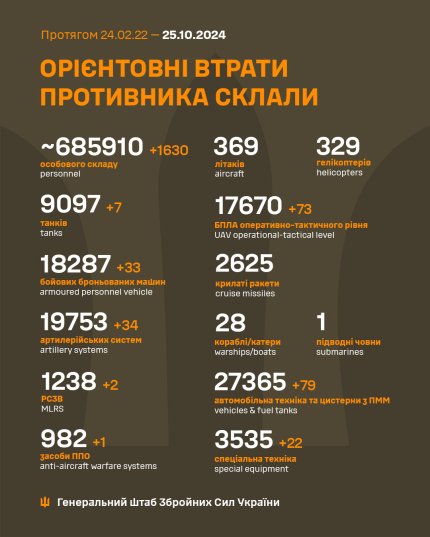The commander of NATO forces in Europe, American General Christopher Cavoli, said that despite the heavy losses of the Russian army, Russian dictator Vladimir Putin still has "dangerous combat forces" that were almost unscathed during the war against Ukraine.
Points of attention
- Russian dictator Putin still possesses dangerous combat forces that were almost unscathed during the war in Ukraine, including long-range aviation and strategic missile forces.
- Despite heavy losses in ground forces, Russia's military structure retains significant potential, both conventional and nuclear, warranting serious consideration by NATO.
- The Russian army inside Ukraine has increased over the past 2.5 years, with plans for restoration and deployment on NATO borders, posing a continued threat that must be taken seriously.
Russia has dangerous forces that were not involved in the war
According to the American general, the Russian army still has forces that were "barely touched" by the war.
What is important to understand is, first of all, we are talking about long-range aviation, strategic missile forces, defense units and submarines.
Christopher Cavoli drew attention to the fact that most of Russia's tactical aviation has not yet been involved in the war.
Therefore, despite significant losses in the ground sphere, the rest of Russia's military structure still has a huge potential — both conventional and nuclear — and therefore it is necessary to keep this in mind, — warned the top NATO general.
According to the military, despite the fact that the ground forces of the Russian army have suffered large-scale losses on the Ukrainian front, the fact that Putin is doing everything possible to restore them cannot be ignored.

The army of the Russian Federation continues to increase
Christopher Cavoli also emphasizes that the Russian ground force inside Ukraine today is much larger than what was there at the beginning of the war.
According to the American general, the Russian army has actually increased over the past 2.5 years.
NATO's top general does not deny the fact that there are currently some quality problems, and some equipment may not be the latest.
Despite this, the aggressor country of the Russian Federation has a plan to restore these ground forces and deploy them on the borders of NATO, and this Alliance should be taken very seriously.
According to the military man, the Russian army will become stronger after the end of the war, because it will gain experience in conducting military operations, even if it loses the war itself.




